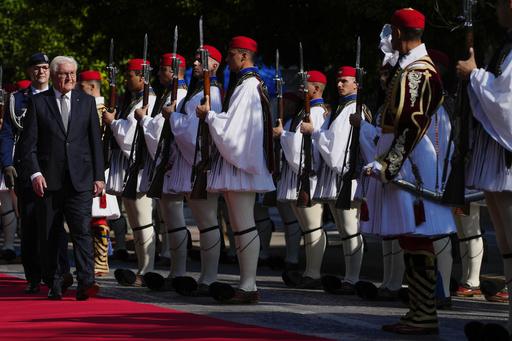
In a recent visit to Greece by German President Frank-Walter Steinmeier, Greek authorities reasserted their ongoing demand for reparations linked to the Nazi occupation during World War II. This statement came while Steinmeier engaged with Greek President Katerina Sakellaropoulou, where he maintained that the matter is legally resolved from Germany’s perspective, although he acknowledged the historical responsibilities Germany carries regarding the occupation.
Steinmeier emphasized Germany’s commitment to its past responsibilities but firmly ruled out any possibility of restitution. During discussions with Prime Minister Kyriakos Mitsotakis, the topic of reparations surfaced once again, with the Prime Minister expressing that for Greece, the issue remains pressing and unresolved. Mitsotakis clearly stated, “As you know, for Greece … these issues are very much alive and we hope that at some point we will resolve them.”
The timeline of Steinmeier’s trip commenced on Tuesday with a visit to a Holocaust museum under construction in Thessaloniki, a significant location in Greek history. This museum is being partially funded by the German government and is situated near an old railway station where many thousands of Greek Jews were deported to concentration camps during the Holocaust, resulting in the tragic loss of countless lives.
On Thursday, the German President’s itinerary will include a visit to Crete, specifically to the village of Kandanos, which was devastated in 1941 following the resistance of local civilians against advancing German forces. The military occupation of Greece began in April 1941 after the country’s army effectively repelled an invasion by Italy, another Axis power. The occupation persisted until October 1944, causing widespread civilian casualties mainly due to starvation and significant destruction of infrastructure throughout Greece.
